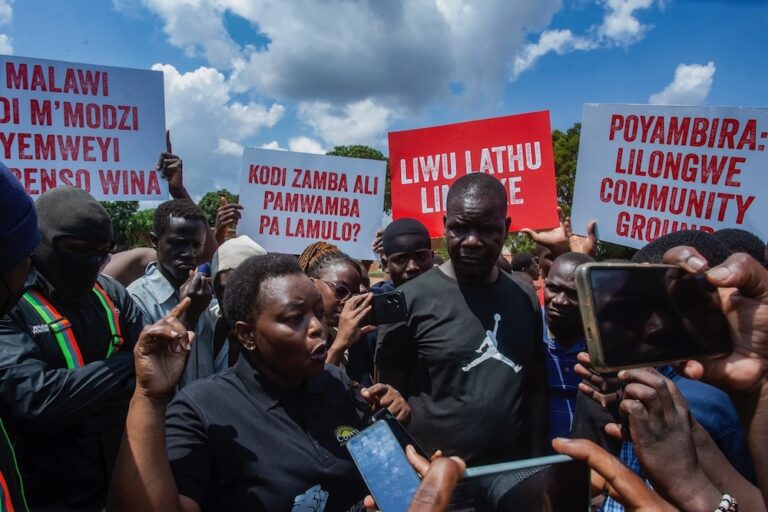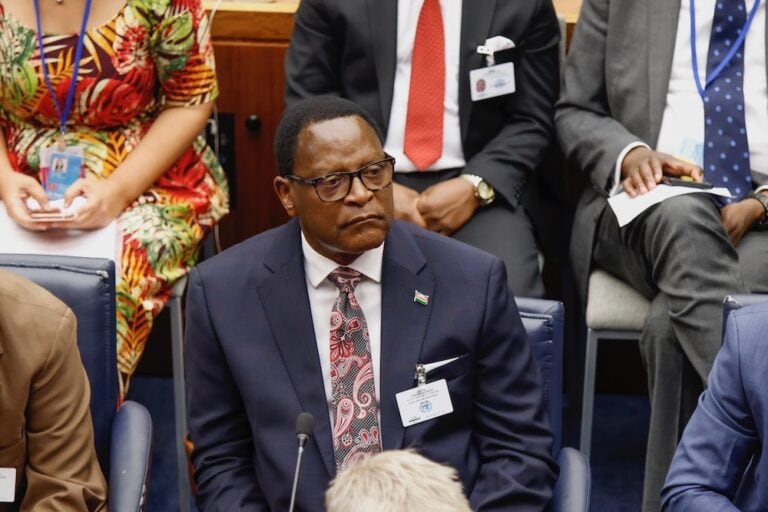(ARTICLE 19/IFEX) – On 19 October 1998, ARTICLE 19 released the following report on communications reform and freedom of expression in Malawi: Malawi Communications: another sorry tale of frustration Since Malawi’s return to multi-party democracy in 1994, there have been major changes in broadcasting, telecommunications, Internet and e-mail. However, according to a new report by […]
(ARTICLE 19/IFEX) – On 19 October 1998, ARTICLE 19 released the following
report on communications reform and freedom of expression in Malawi:
Malawi Communications: another sorry tale of frustration
Since Malawi’s return to multi-party democracy in 1994, there have been
major changes in broadcasting, telecommunications, Internet and e-mail.
However, according to a new report by ARTICLE 19, “Malawi: Communications
Reform and Freedom of Expression”, these have been characterised by
profit-making through influence-peddling and monopoly formation, while
blocking various private sector initiatives. The report, which is being
published as a new communications bill due to go before the Malawi
parliament, provides the government with an opportunity to bring positive
regulation and an end to profiteering.
The second multi-party elections are due to be held next year, so the need
for broadcasting reform has become pressing. Overall, there is a desperate
need for better communications in Malawi, in order to accelerate both
economic and democratic development. At present the supply of telephones per
head of population is one of the lowest in Africa. ARTICLE 19 shows that
there is no shortage of private companies attempting to address this and
other communication deficits, yet they are stymied at every turn by state
bodies, in particular the Malawi Posts and Telecommunications Corporation
(MPTC).
Land-based telephones, pagers and cellphones
Land-based telephones are provided by the parastatal monopoly operator, the
MPTC. The cost of international phone calls is high and despite promises to
improve, services have eroded to the point where they frighten off new
investors and demoralise companies operating in Malawi.
Pager services have been subject to technical blockages, while cellphones
remain expensive, have very limited range, and are controlled by Telekom
Networks, which operates as a strictly commercial operation, with no
contractual obligation to service rural residents, or others without access
to the fixed telephone network. This is in spite of the fact that the
company has a monopoly, and is 40 per cent owned by MPTC.
Internet
There is only one Internet service provider in Malawi – MalawiNet. Here,
too, there is a problem of monopoly: the government’s Anti-Corruption Bureau
is investigating MalawiNet and an individual associated with it. Potential
competitors, such as CompuServe/AOL have had their services cut off while
endless bureaucratic haggling goes on, leaving MalawiNet as the only
recourse, apart from a few small e-mail services.
Groups complaining about the preferential treatment given to MalawiNet
include the Sustainable Network Development Programme of the United Nations
Development Programme (UNDP), which thought that it had an agreement to
provide a cheap service linked to a national environmental programme, and so
was very surprised to find that the MPTC had chosen to set up MalawiNet on a
commercial basis.
Radio
Radio is still the most important medium in Malawi, with far greater reach
than the written press. Successive government ministers with the Information
portfolio have interfered directly with the Malawi Broadcasting Corporation
(MBC) radio station, blocking attempts to make it independent.
The Malawi Broadcasting Corporation (MBC) dominates radio broadcasting, with
most applications for private radio stations turned down. Currently only two
commercial stations have been given licences: they are owned by the
President’s press secretary and the son of a Minister. A third station, for
rural women, supported by donors, has also received a licence recently, and
the African Bible College runs a religious station which MPTC does not allow
to broadcast news.
The need for reform
There is an urgent need for reform of broadcasting in Malawi. The draft
Communications Bill, due to be laid before parliament imminently, goes some
way to addressing this need. Positive aspects include the establishment of
clear criteria and a formal procedure for tendering and issue of licences,
as well as establishing a regulatory body to oversee them.
However, ARTICLE 19 has a number of reservations about the bill, including
the following:
appointments to
the new regulatory authority and the board of the Malawi Broadcasting
Corporation. ARTICLE 19 is of the view that the Public Appointments
Committee of parliament should nominate candidates.
prevent political interference.
interest for those who are regulating broadcasting or communications while
maintaining a financial interest.
expression. For example, the state will have the only national station, and
will maintain sole access to AM frequencies for seven years. Companies may
be refused licences on the basis of “national security”.
covered in
the bill or the accompanying policy statement.


